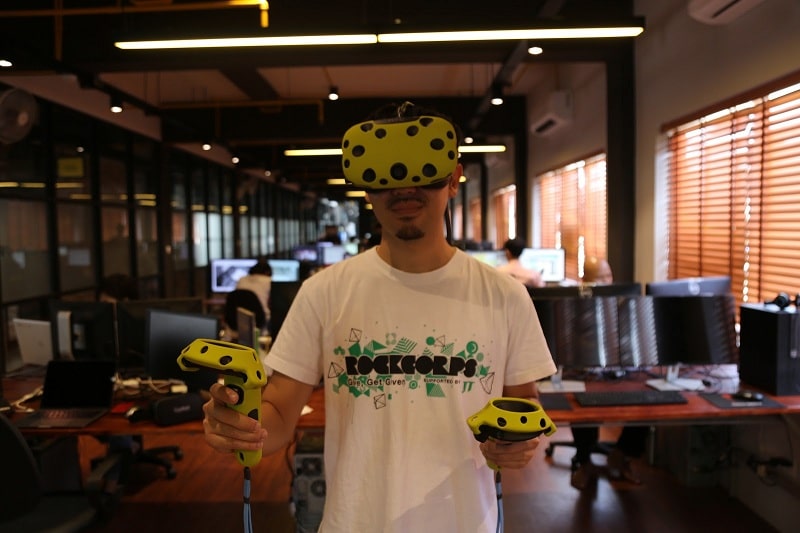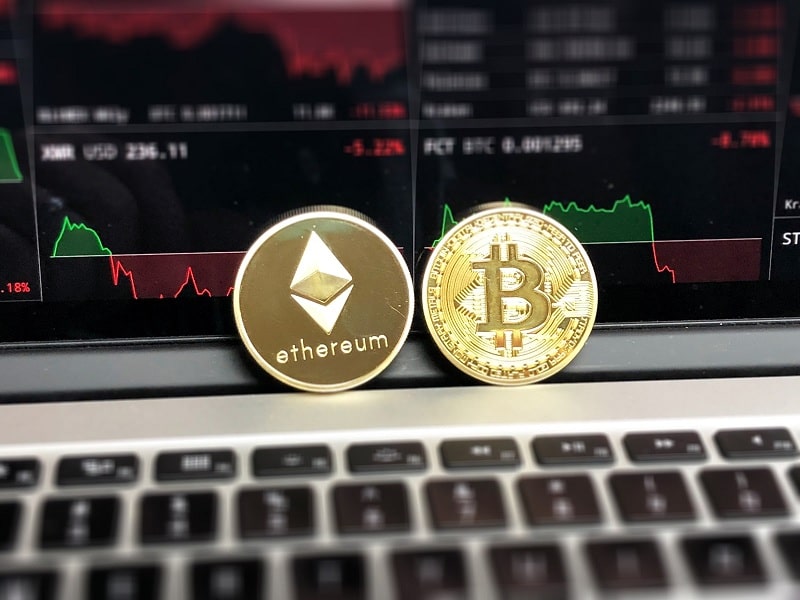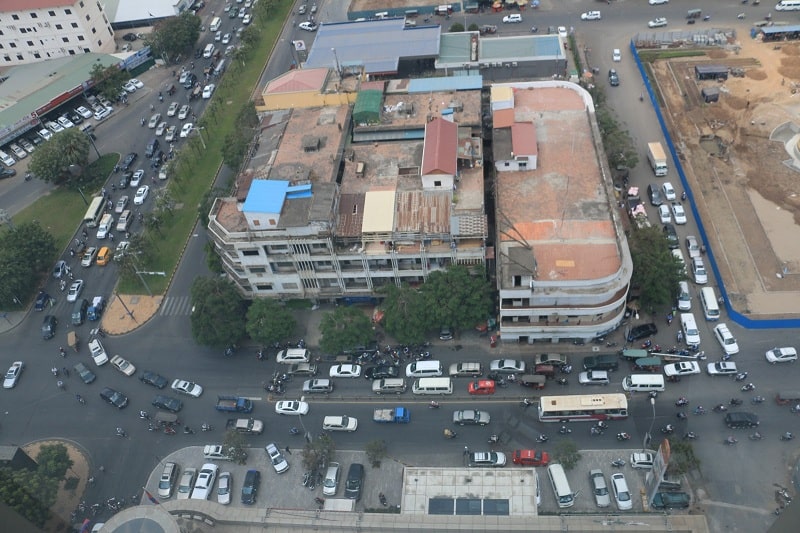![]()

According to real estate investment company JLL, the value of investable commercial property worldwide will hit US$65 trillion by 2020. Nearly a third of that, it stated in a recent report, will be in the Asia Pacific region.
We are entering the last year of this decade. Technology shapes our everyday life now more than ever. Communication across the globe is instant, businesses trade millions of dollars with those in other nations via the internet and normal people do their work and get information on the web. Tech is pivotal to every industry and real estate is no exception.
The JLL report goes on to show that, of the $7.8 billion poured into proptech (property technology) between 2013 and June of 2017, 61% of that was in the Asia Pacific region. It is truly the global centre of real estate innovation.
Tech inclusion is rapidly sweeping across Cambodia. Data from the Mekong Business Initiative's 2017 report on Cambodia fintech shows there were over 27 million mobile subscriptions and over seven million internet users in a country of 16 million people. Perhaps more significant, over 50% of the population is under 25 and 21% live in an urban area. This means tech adoption happens at a breakneck speed.
But which technologies are changing the face of real estate? Well, here are five of the big ideas that could radically shake up the property sector in the coming year:
Cyberspace tours
Everyone has seen the flashy virtual reality (VR) headsets put out by Oculus and HTC. We are now seeing that these aren’t just devices for video games. Educational and non-profit organisations are already adopting this technology to develop immersive experiences. So, it’s only natural that real estate businesses are using them to give virtual tours and explore intricate 3D designs.
Yu Kobayashi is the CEO of Lastmile Works, a Phnom Penh tech startup which is creating interactive apps that allow users to explore buildings and even entire cities in the virtual space.
“The experience is more useful than a brochure or animation. The user can really experience it [the space]. Some of them even buy the property without ever seeing it in person,” Kobayashi said.
He was sure to add that the price to create these immersive environments was already trending downward. One could be created for as little as $200, he claimed.
The importance of this technology can’t be understated in Cambodia, either. Most real estate funding in the Kingdom, in fact, comes from investors in China. The power to take virtual tours from hundreds of miles away will surely open the floodgates for even more capital inflows.
Blockchain: It ain’t just bitcoin
Blockchain has hit the headlines because it is the technology behind bitcoin. But actually, cryptocurrency is just the tip of the iceberg when it comes to blockchain. Contracts and agreements can be distributed across the globe with the technology. Indeed, entire properties have already been traded on blockchain networks.
In Malaysia, one group has issued tokens which are backed by properties in Kuala Lumpur. This essentially allows anyone with an internet connection to own a fraction of that estate.
Official and commercial uses of cryptocurrency are technically illegal in Cambodia after a joint statement issued by the National Bank of Cambodia in June. So, projects now exist in a grey area. The ubiquity of financial scamming was cited as a reason for the ban.
Steve Miller, founder of CryptoAsia, said that after blockchain is embraced in the financial sector it will filter down into other industries.
“Once the actuality of a trustless money system is realized, then the more exotic use cases of a distributed ledger system will fall into place such as rights management, voting, and other smart-contract innovations,” he said.
In Mean, who founded the Khmer Crypto Foundation and a project called KH coin before the official ban, urged people to educated themselves about any sort of tech before making investments.
KH coin, he said, was simply a project that aimed to educate people about blockchain, help them avoid scams and boost tech knowledge.
Echoing Mean’s comments, Chhay Lem, founder of Serey, a social media and content network based on blockchain said his project was meant to boost education and information access in Cambodia. The platform, which rewards users for creating videos or news articles, decentralises information on a global scale.
“Blockchain is the future, and we are using it to create a space for discussion that is completely open and free,” Lem said.
There’s an app for that
If you’ve perused any of the listings for the latest developments in Cambodia, you’ve undoubtedly heard about smart home features. Lights, televisions, air conditioning, security systems and a full range of home appliances can all be controlled from a smartphone. While this concept is still a luxury in Cambodia, properties in South Korea and Singapore have been implementing it for years.
IoT, or internet of things, is the broader concept that encompasses these connected devices. Companies making everything from light bulbs to blenders are hopping on the IoT train. There’s even an IoT Asia conference held every year in Singapore.
Real estate isn’t the only industry that could be overhauled by IoT, either. The technology is already being put to use in the manufacturing, utilities and logistics sectors in Thailand. Cambodia’s leaders have already set goals towards bringing more high-skilled jobs and value-adding processes to the nation’s factories. Along with robotics and automation, IoT is a clear solution to supercharge local production.
Take it to the bank
Real estate and banking are intimately related, no matter where you reside. Loans and financing are needed for mortgages, down payments and investment. The banking sector in Cambodia is undoubtedly growing and becoming more mature. Indeed local media has noted that more international players are entering the country, raising standards and making competition more fierce.
However, peer-to-peer lending is also on the rise within Southeast Asia. A report from Cambridge University found that the market for alternative financing in Southeast Asia alone was worth a staggering $215.9 million in 2016. Many services that are emerging offer smaller loans with fewer stipulations than banks can offer. What's more, many have humanitarian motives and, ultimately, aim to reduce poverty by bringing people another step closer to more formal financial institutions.
Singapore's Fintech News recently profiled P2P lending platforms across Southeast Asia. They highlighted three operating in Cambodia: Karprak, Komchey and Lendwithcare.org.
Big data in the big city
As cities like Phnom Penh offer more and more job opportunities, they grow in size. With a larger population comes the potential for more detailed studies of the market. The idea of big data is quite new. In a report on the topic from earlier this year, real estate group CBRE claimed that urban big data was about three V’s: volume, velocity and variety.
Cambodia’s capital is home to nearly two million. The amount of data and information about anything from transactions to food preferences is staggering. What’s more, because of the ubiquity of smartphones, this data can be collected constantly and cover a range of media from pictures and text to video or audio.
CBRE’s report goes on to state that higher urban wages and a greater availability of opportunities both contribute to rising real estate prices.
“The availability of high-wage, high-status jobs plus the local effect of quality of life [a city’s amenities] will be equal to local real estate values,” the report says.
The document goes on to show a few examples of smart city monitoring in action, and how big data is helping to solve real problems. In Santa Clara, California, sensors were put on water systems to save 180 million gallons of water and avoid drought. Yinchuan, China has implemented facial recognition technology and grocery delivery apps to increase efficiency and productivity.
Despite noting challenges with regards to privacy, usability and human capital, the report clearly states that Asia could be the most vital region for big data.
“Many of the most impressive examples of the application of big data techniques are in Asia -- China in particular, but also Korea.”
Potential proptech powerhouse
Though many tech developments have been slow to catch on in Cambodia, there is momentum growing. Often people in the country get their first internet connection through a mobile phone, leapfrogging personal computers entirely.
A similar effect is being echoed in the world of banking. Credit and debit cards remain relatively rare in the country. However, digital payment platforms such as PiPay, WePay and Smart Luy are a growing trend. We could see the masses jump straight from cash to mobile-based payment.
Certainly, there is a growing demographic of youths that are eager to get into the tech world. Perhaps many of them will find themselves working in one of these four areas.








Comments